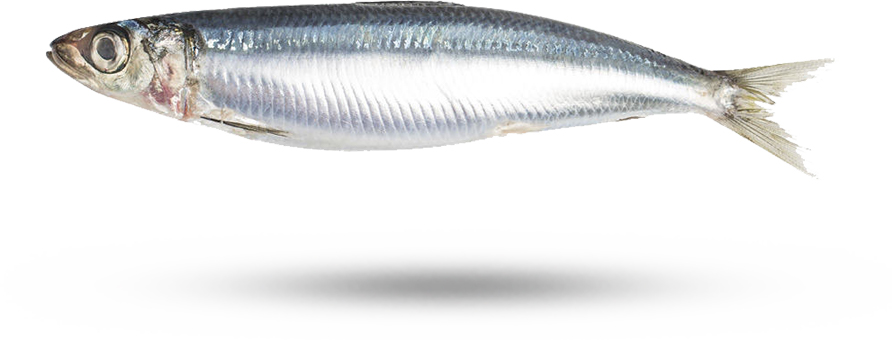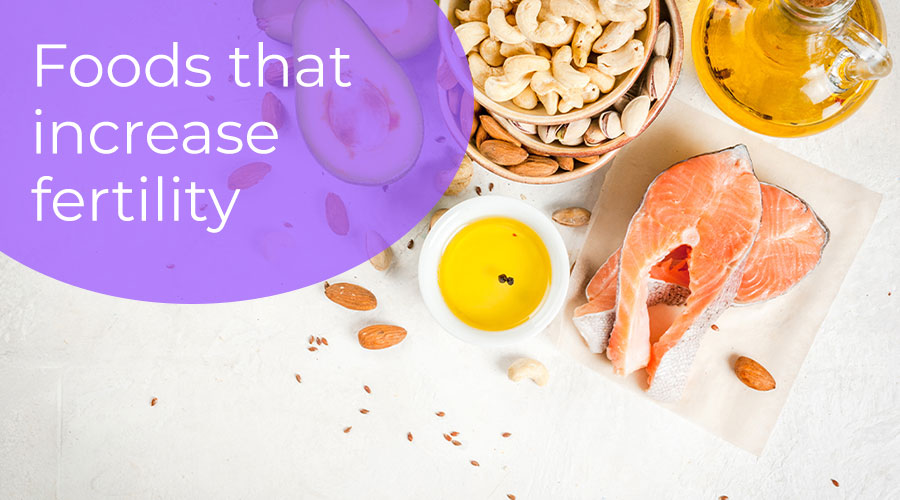Incorporating fertility-boosting foods into your diet is a great way to increase your chances of becoming pregnant. Fertility-boosting foods are those that are high in vitamins and minerals, as well as antioxidants. Some of the best fertility foods include dark leafy greens, legumes, nuts, seeds, and berries. These foods are not only beneficial for boosting fertility, but they are also packed with nutrients that are essential for overall health.
Contents
Sunflower seeds

When it comes to foods that increase fertility, sunflower seeds are definitely at the top of the list. Sunflower seeds are packed with zinc, which is essential for healthy sperm production. They’re also a good source of vitamin E, which is important for keeping semen healthy and motile. Additionally, sunflower seeds are high in folate, a vitamin that’s critical for preventing birth defects. So if you’re trying to conceive, be sure to add sunflower seeds to your diet.
Asparagus

Asparagus is a vegetable that is known for its many health benefits. It is a good source of fiber, vitamin A, vitamin C, vitamin E, and vitamin K. Asparagus also contains thiamin, riboflavin, niacin, pantothenic acid, vitamin B6, folate, magnesium, potassium, zinc and selenium. Some of the health benefits of asparagus tadalafil sandoz include improved digestion, increased fertility, and better heart health.
Lentils
Lentils are a powerhouse of fertility-boosting nutrients. They are high in zinc and vitamin C, both of which are important for sperm health and overall fertility. Lentils are also a good source of folate, which is essential for pregnant women to ensure a healthy pregnancy. In addition, lentils are low in fat and calories, making them a healthy addition to any fertility diet.
Salmon
Most people know that salmon is a healthy food choice, but what you may not know is that salmon can also help increase fertility. Salmon is loaded with omega-3 fatty acids, which are beneficial for both men and women. The omega-3 fatty acids found in salmon help to improve blood flow to the reproductive organs, which helps to increase fertility.
Additionally, salmon is a good source of protein and other nutrients, which are all important for maintaining a healthy pregnancy. So if you’re looking to boost your fertility, be sure to add some salmon to your diet.
Cod liver oil
Cod liver oil is a type of fish oil that is rich in omega-3 fatty acids. Omega-3 fatty acids are important for fertility because they help to improve blood flow to the reproductive organs and promote ovulation. Cod liver oil also helps to increase the production of hormones like estrogen and progesterone, which are important for fertility.
Sardines

Sardines are a small, oily fish that is packed with nutrients. They are high in omega-3 fatty acids, vitamin B12, and selenium. All of these nutrients are important for fertility. Omega-3 fatty acids help to keep the reproductive system healthy and functioning properly. Vitamin B12 is essential for producing healthy eggs and sperm. Selenium is a mineral that is needed for hormone production and sperm health.
Sardines are also a good source of protein and calcium. Protein is important for building muscle mass and strength. Calcium is essential for maintaining bone health. A diet that is rich in protein and calcium can help to improve fertility rates.
Adding sardines to your diet is a great way to increase your fertility potential. They are affordable, readily available, and delicious!
Avocados

What could be more perfect than a food that is not only delicious, but also good for you? Avocados are one of those foods. They are a great source of healthy monounsaturated trans fats, as well as potassium, fiber and vitamins C and E. All of these nutrients are important for fertility.
The healthy fats in avocados help to keep your reproductive system functioning properly, while the potassium helps to regulate your hormones. Fiber is also important, as it helps keep your digestive system regular and can reduce the risk of constipation, which can be a problem for fertility.
Lastly, vitamin C supports both male and female reproductive health, while vitamin E is beneficial for both men and women’s eggs. So next time you are looking for a snack or want to add some extra nutrients to your meal, reach for an avocado!
Walnuts
Walnuts are a type of nut that is high in monounsaturated fatty acids, which are known to improve lipid profiles and increase fertility. Walnuts also contain high levels of antioxidants, including vitamin E, copper, and manganese. These antioxidants can help protect the body’s cells from damage and improve the overall health of the reproductive system. In addition, walnuts are a good source of fiber, protein, and omega-3 fatty acids, all of which are important nutrients for couples trying to conceive.
Beets
Beets are often overlooked as a powerful fertility food. They are high in antioxidants, which help protect the reproductive system from damage. Beets are also a good source of folate, which is important for pregnant women and their developing babies.
Berries
Berries are a delicious part of a healthy diet. They are also great for fertility. Some berries, like blueberries and strawberries, are especially high in antioxidants. These antioxidants can help protect the eggs and sperm from damage. Other berries, like raspberries and strawberries, are packed with nutrients that are essential for a healthy pregnancy.
Most experts agree that it’s best to eat a variety of different berries each day to get the most benefit. However, as long as you’re eating a good amount of berries each day, you should see an improvement in your fertility. In general, it’s recommended that women eat 1-2 cups of fresh berries per day, while men can eat 2-3 cups.
Sweet potatoes
One of the many foods that are recommended to increase fertility is sweet potatoes. Sweet potatoes are a great source of beta-carotene, vitamin A, and vitamin C. They are also a good source of fiber, potassium, and magnesium. All of these nutrients are important for maintaining a healthy reproductive system. Sweet potatoes can be eaten boiled, baked, or mashed.
Eggs
Fertility is a hot topic for couples who are trying to conceive. There are many different opinions on what to eat and what not to eat in order to increase fertility. Some people swear by eating eggs, while others believe that they should be avoided.
So, what’s the verdict? Should you start eating eggs if you’re trying to conceive? The truth is, there is no right or wrong answer – it depends on your individual body and situation. Eggs are a great source of protein, vitamins and minerals, but they do contain cholesterol. If you have high cholesterol or are at risk for heart disease, you may want to avoid eating eggs. However, if you’re generally healthy and don’t have any concerns about your cholesterol levels, then eggs can be a healthy part of your fertility diet.
Greek yogurt

Greek yogurt is made from sheep or goat milk that has been strained to remove the whey and lactose. The resulting thick product is called yogurt. In Greece, the word “yogurt” means “to curdle.” Greek yogurt is thicker and more sour than other yogurts. It also contains more protein than other yogurts.
Greek yogurt is a food that can help increase fertility. It is high in protein and calcium, both of which are important for fertility. Greek yogurt is also a good source of probiotics, which can help improve reproductive health.
Pomegranates
The pomegranate is an ancient fruit that has been around for centuries. It is believed to have many health benefits, including increasing fertility. The pomegranate is a nutrient-rich fruit that is high in antioxidants, which are beneficial for overall health and fertility. Pomegranates are also a good source of fiber, vitamin C, and potassium.
Try adding pomegranate seeds to your breakfast yogurt or oatmeal, or enjoy a glass of pomegranate juice with lunch or dinner.
Watermelon
Watermelon is a nutrient-rich fruit that contains antioxidants, vitamins, and minerals that are beneficial for fertility. The lycopene in watermelon helps to protect the sperm from oxidative damage, and the vitamin C in watermelon helps to increase sperm count and motility. Watermelon also contains potassium, which is necessary for muscle function and can help to improve egg implantation.
Dark leafy greens

Dark leafy greens are an important part of a fertility-promoting diet. They are high in antioxidants, vitamins, and minerals, all of which are essential for optimal health. Dark leafy greens also contain phytonutrients, which are plant-based compounds that offer a variety of health benefits. Some of the best dark leafy greens to include in your diet are spinach, kale, collard greens, and Swiss chard.
Bee pollen
There are many foods that are said to increase fertility, but one of the most well-known is bee pollen. Bee pollen is a powder made from the pollen of flowers that bees collect. It is often consumed as a supplement because of its alleged health benefits. Some people believe that bee pollen can help increase fertility because it is high in antioxidants, vitamins, and minerals. There is limited scientific evidence to support these claims, but some studies have shown that bee pollen may improve sperm quality and motility.
Inference
In conclusion, incorporating the foods listed above into your diet can help increase your fertility. By adding more vegetables, fruits, whole grains, and healthy fats to your meals, you are providing your body with the essential nutrients it needs to support optimal reproductive health. If you are trying to conceive, make sure to talk to your doctor about what specific diet is best for you. And lastly, don’t forget to enjoy yourself – indulge in a little dark chocolate or glass of red wine every now and then!
Frequently asked questions
Do fertility boosters work?
There are a number of “fertility boosters” that people claim will help increase your chances of getting pregnant. But do they actually work?
The answer is: it depends. Some of the things that are claimed to boost fertility – like taking prenatal vitamins or eating specific foods – may have some benefits, but there’s no evidence that they will definitely help you get pregnant. Other things, like using ovulation predictor kits or trying acupuncture, have been shown to help some people get pregnant, but there’s still not enough research to say for sure whether or not they work.
So what should you do if you’re trying to conceive? The best thing is to talk to your doctor about what options might be best for you. They can help you figure out which fertility boosters might have the most benefit, and which ones you should avoid.
How can I increase my fertility fast?
Ovulatory infertility happens when ovulation fails to occur in women. However, there are many things you can do to help increase your fertility. One of the best ways is to make sure you are eating a healthy diet. There are certain foods that have been shown to help increase fertility.
However, if you have been trying to conceive for a while and haven’t had any success, it might be time to see a fertility specialist. There could be an underlying issue that is preventing you from getting pregnant.
What foods can you eat to increase fertility?
There are a number of foods that are said to help boost fertility, including:
- Dark leafy greens like spinach and kale. These vegetables are high in folic acid, which is important for pregnant women because it helps prevent birth defects.
- Citrus fruits like oranges and grapefruits. These fruits are high in Vitamin C, which is important for both men and women when trying to conceive.
- Lean protein sources like fish and chicken. Protein is important for healthy reproductive organs and can help improve your chances of conceiving.
- Whole grains like oatmeal and brown rice. These foods are high in fiber, which can help regulate your menstrual cycle and improve your overall health.
- Nuts and seeds like almonds and chia seeds. These foods provide healthy fats and make great snack options.
- Olive oil. One food that is often recommended for couples who are trying to conceive is olive oil. Olive oil is a healthy fat that is loaded with antioxidants. It has been shown to improve fertility in both men and women.
- Low fat dairy products such as yogurt, cheese, and milk. For women, dairy foods intake can help increase female fertility and the chance of getting pregnant by balancing hormones and regulating menstrual cycles. For men, dairy products contain high levels of zinc which is essential for healthy sperm production.
What not to eat while trying to conceive?
There are many different foods that people recommend to eat when you’re trying to conceive, but there are also quite a few that you should avoid. One big no-no is alcohol. Studies have shown that drinking even moderate amounts of alcohol can decrease fertility in both men and women. So if you’re trying to conceive, it’s best to abstain from drinking altogether.
Caffeine is another food or drink to watch out for when you’re trying to conceive. Too much caffeine can interfere with your body’s ability to ovulate, so try to limit yourself to one or two cups per day. Additionally, steer clear of fatty foods and processed meats; they’re not good for your overall health anyway, and they could also make it more difficult for you to get pregnant.
What diet is best for fertility?
There are many different opinions on what the best diet for fertility is. Some people believe that you should eat a lot of protein and vegetables, while others think that a vegan or vegetarian diet is best. There is no one right answer, and what works for one person may not work for another.
One thing that is generally agreed upon is that you should eat plenty of fruits and vegetables. This is because they are packed with antioxidants, which can help improve fertility. You should also try to avoid processed foods and sugary snacks, as they can be harmful to your fertility.



